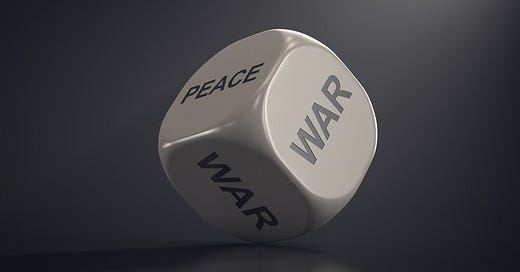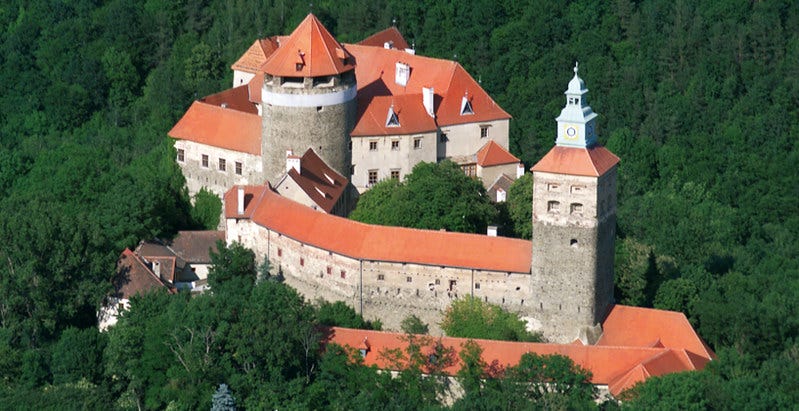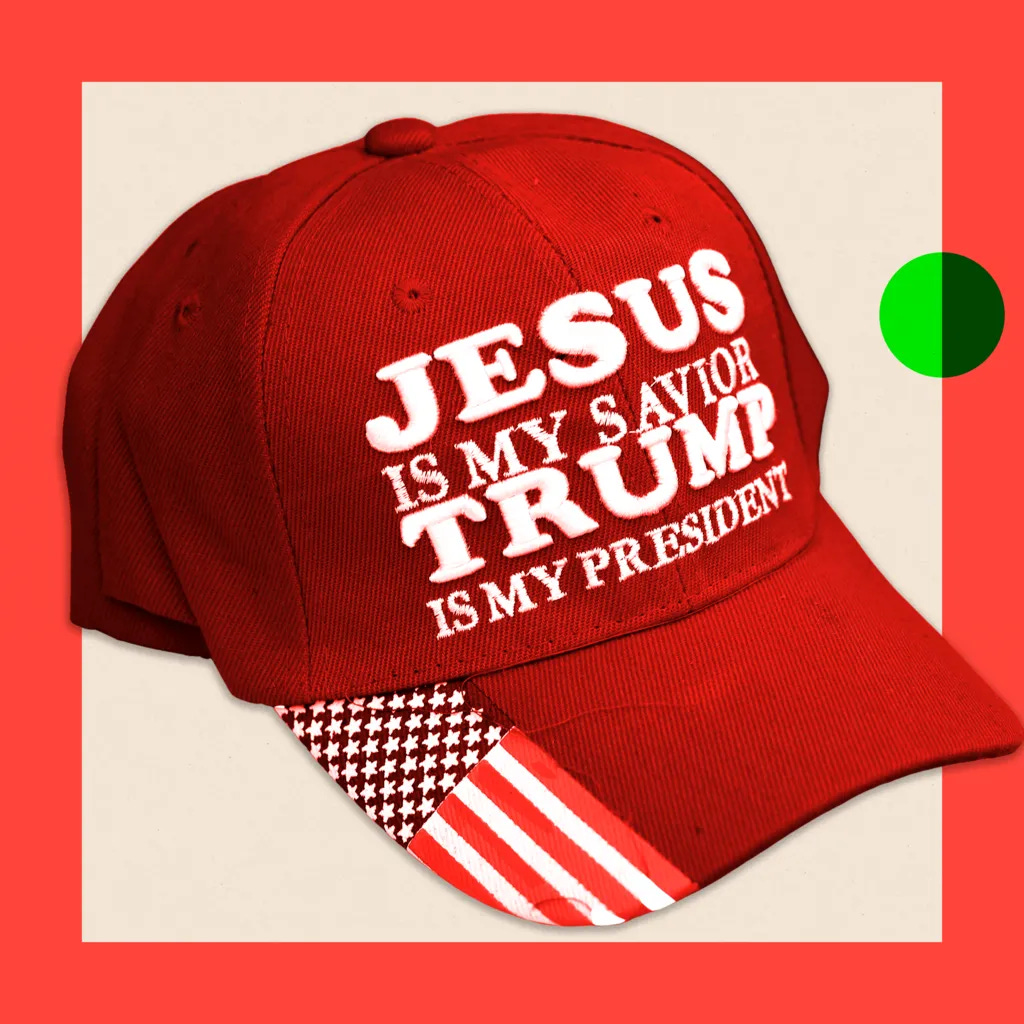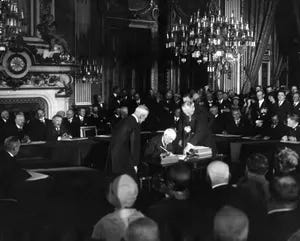Around twenty years ago, when the European Peace University near the Austrian town of Stadtschlaining was still operational, I had close conversations with students from all over the world. The most interesting were those who came from the United States. They would approach me with the question: "How can we best work for world peace?" With a bitter smile, I would reply, "Please, I beg you, work on democracy at home! Be careful who you elect as president, because that person decides on Life and Death across the world. I and everyone else don't have the right to vote, yet your president has more power to influence our lives than the politicians we elect ourselves." If someone had asked me to imagine an American president who wouldn't be militant and wouldn't qualify as a war criminal, that profile certainly wouldn't align with Donald Trump. And now, he's back in the White House for a second time… I admit that I, too, was once tempted by the charm and eloquence of Obama, but reason prevailed, and while everyone was euphoric (including in Macedonia), I wrote a column about the false hope called Obama.
The phenomenon of Trump 2.0 is the subject of numerous analyses. The facts describe a man who is not only part of the oligarchy but also someone indicted on 34 criminal charges (for which no punishment followed!?), unpredictable, a bigot, sometimes even tragically comedic... Yet, on the other hand, he will be remembered as someone who kept the promise he made even before his official inauguration: just recently, a ceasefire agreement was reached in Gaza! Until now, this was portrayed as an impossible mission, with Hamas often blamed for the failed attempts. Now, even those who dislike him admit that this is a significant achievement and at least an initial step toward halting genocide. However, it is also evidence of the American government's complicity in the genocide. Brilliant journalists and analysts are giving him a chance. For example, Seymour Hersh, in his analysis, argues that a presidential term shouldn't be judged based on the "cover," i.e., the president's outward appearance and expectations. He cites Kennedy and Trump as examples.
The bitter thesis is that Trump is the "savior," the one who is supposed to fix the (bankrupt) American state and the world brought to the brink of civilizational collapse. For his second term (after a four-year interruption, something unprecedented in American political history), many metaphorically use the phrase "the second coming." Of course, it carries the religious connotation of the second coming of Jesus. According to religious understanding, during the second coming, Jesus will be the conquering King, not the suffering one; he is supposed to come with entire armies from the heavens by his side.
With Donald Trump's return to the White House, Yeats' allegory in the poem "The Second Coming" is often implicitly evoked. The allusion to this poem, which speaks of an apocalypse in the grim and pessimistic atmosphere of post-war Europe, seems to resonate with the Republican narratives that propelled Trump to a historic mandate, particularly due to the dual legitimacy gained in both the electoral college and the popular vote. The narrative that this was America's last chance to save the country from "woke" ideologies and the socio-economic crisis carried more weight during the campaign. Trump reinforced this image by saying: "Many people have told me that God spared my life for a reason, and that reason was to save our country and to restore America to greatness."
Interestingly, many believe he will not only save America but also the world. Bertolt Brecht once wrote, "unhappy is the land that needs a hero," and I would add: woe to the world that needs saving. And from figures like Trump... At the brink of the start of his term, it's good to remember that we are dealing with an unpredictable man and a president who has not offered a vision or program for his term (which will also be his last, right?). Many do not want to speculate about what this man might do because he is erratic, inconsistent, and promotes his "policies" at press conferences with unusual rhetoric. Let us recall that during his first term, he made statements about destroying North Korea from the UN building. Even then, we knew this was a violation of Article 2, paragraph 4 of the UN Charter. Now, while working on achieving a ceasefire in Gaza on one front, he has expressed overt territorial claims against other countries, at least two of which are NATO members, i.e., allies. Analysts are closely examining his moves, which hint at intervention in Venezuela, likely aiding in the partitioning of Syria (with a part belonging to Greater Israel), and opening a military front with Iran. War with China is something etched in the minds of everyone in the American establishment, and even the respected Mearsheimer adds fuel to the fire by justifying (for now) the economic war with China as "logical," according to his neorealist theoretical views. Forgive me for not seeing Trump as a savior for Americans or the world.
First, it seems Trump is unaware of how much the world has changed since he last sat in the White House. Even the peace plan of his special envoy, Kellogg, is based on the mistaken belief that the U.S. holds dominance over Russia regarding the Ukrainian issue. (When Kellogg's name is mentioned, my first association is with the historically famous Briand-Kellogg or Kellogg Pact, also known as the Paris Pact of 1928, officially named the General Treaty for Renunciation of War as an Instrument of National Policy. Concluded outside the League of Nations, carrying the names of French Foreign Minister Aristide Briand and U.S. Secretary of State Frank Kellogg, the pact was a desperate attempt to prevent World War II.)
To conclude, a state and society addicted to war, which lives off and profits from the military-industrial complex, cannot promote global peace and cooperation unless subjected to internal rehabilitation. Even the greatest optimists now know that the ceasefire in Gaza is more of an inaugural gift for Trump, allowing him to appear with a laurel wreath and the aura of a peacemaker. For the Palestinians, a time-limited genocide is being offered as something they should be grateful for.
Trump is neither sent by God nor a peacemaker (though sadly, many don't know the difference between negative and positive peace). He is a morbid symptom of a dark era of hyper-imperialism that will stop at nothing to achieve its "national interests," which stretch from the Arctic to Australia. This ailing state cannot create a social contract or even foster elements of a welfare state—at least in healthcare and education.
Trump is not a unifier, even though he has legitimacy—which will melt like a snowball in the summer heat. Very soon… His power, procedurally gained through democratic means, is in a cabinet full of hawks and oligarchs. The role of Elon Musk will especially be studied as a new step toward the final collapse of the Empire, which is turning into a private enterprise, an apparatus in which the wealthy can buy political functions and even rent out the private residence of the American president. Such politics have nothing to do with democracy. And don't forget: a wolf changes its fur, not its nature. America remains America—a nation that can no longer rule alone but cannot accept becoming "an ordinary nation" like others and abandoning its "exceptionalism," its God-given uniqueness.
On the other hand, listening to the new NATO Secretary General (if we thought no one could be worse than Stoltenberg, we now see it’s possible!), European partners (with a few exceptions that oppose it) are preparing for war. Rutte demands a military "mindset," and increased military spending and warring with Russia are high on his agenda. We Macedonians have the bitter privilege of hearing this from Macedonia's wealthy Radmila Šekerinska, known as Marie Antoinette. She lives up to her name, asking for more money for weapons than for bread from the poorest country in Europe.








